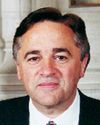Mr. Speaker, I rise today to pay tribute to the Bard of Avon, William Shakespeare, whose birthday we commemorate on April 23.
A weekend of special events including a silent auction, a cake decorating contest and a gala birthday dinner will take place in my riding to mark this occasion. The Lakeside Seniors, and Hamlet School which is putting on a play, and many hundreds of people are involved in this celebration. I congratulate everyone who is involved in this, particularly Ted Blowes and Debra Huggins.
On the heels of this celebration, the Stratford Festival is opening its 43rd season which will take place on May 29. I encourage all members of the House and all Canadians to attend the productions this summer. I am confident it will be a theatrical experience to cherish.
Members of volunteer organizations are the very heart and support of this Shakespearian festival. This year the festival will be missing one of the western world's leading classical actors with the death of Mr. Nicholas Pennell. He will be missed this summer.
I wish the festival every success in the upcoming season as the Stratford adventure continues. I have put a playbill on each member's desk today.

















